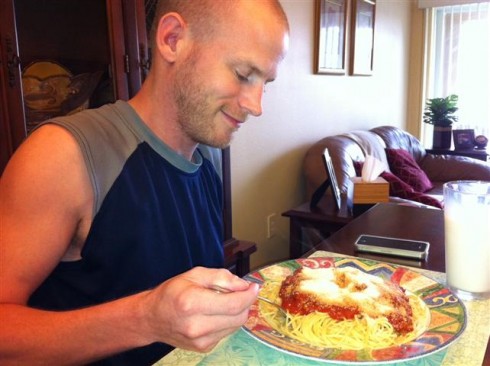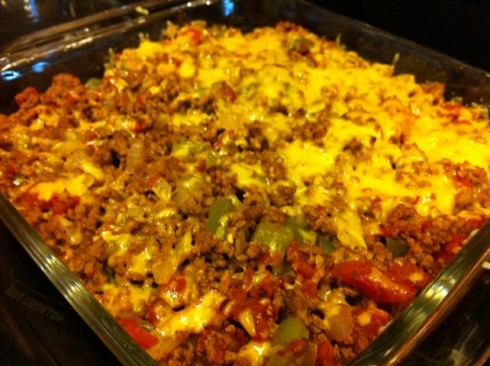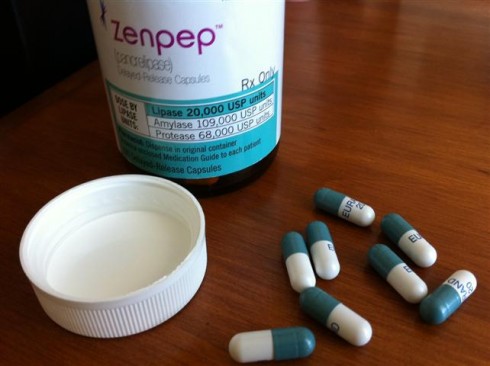We may only be two people, but keeping our grocery budget on track is a definite challenge in our house. When we first got married we could swing by the grocery store on our way home from somewhere and just make up our list as we shopped. Now with my allergy diet in combination with Jesse’s CFer diet, there is no way we could afford to do that anymore.
With some planning and a little extra shopping time I’ve managed to cut a huge chunk out of our grocery bill… and no I’m not an extreme couponer. I do use coupons, but mostly for cleaning and household products. There aren’t a whole lot of coupons out there for real food, but that doesn’t mean you can’t still save a lot of money. Here’s what I’ve learned:
1. Use store competition to your advantage. There are two grocery stores right near our house, both are competing for our business. This means that when something goes on sale at one store, the other store will often have it on sale the following week. Why not take advantage of both sales? It may sound like a lot of extra work, but it’s really not. I think it’s worth it for the money I have saved.
On Tuesday store number one sends their ad flyer in the mail. I will usually stop by that store on Wednesday and buy ONLY their sale items. On this trip I’m mostly interested in the produce and meat departments. Then I will plan my weekly meals around the sale items I already bought. On Fridays I do my real shopping at store number two. With the most expensive items already purchased (meats), I can focus on getting the filler items that I need to round out my recipes.
2. Be willing to switch brands. There are some items where I am very brand loyal, but there are other items that it really doesn’t make a difference who makes it. I will clip lots of coupons and then wait until the store happens to have that item on sale, and buy whichever is cheaper after the coupon. This way you can double your savings on one item.
I don’t really believe in creating a stockpile like you see people doing on the coupon shows on TV. I really see no reason why I would ever need a collection of one thousand toothbrushes. However, I do think it’s a great idea to buy a little extra when there is a sale on items such as canned foods or frozen vegetables. I only buy frozen vegetable when they are less than $1, and I buy a lot when they are that price. This way I’m set for quite a while, enough to last until they go on sale again.
3. Buy fresh, seasonal foods. People tell me all the time that my fresh foods diet must be so expensive. While it is true that I spend a large portion of my grocery budget in the produce section, I save even more by avoiding the cookies and crackers isle. Convenience foods are convenient because someone else has already done the work to make it and they’re ready to eat. If you make snacks yourself, you save the convenience charge.
I try not to go into the store with a list of produce I want to buy. Instead I buy what is in season and has the lowest prices. It took me a while to learn what a reasonable price is for each type of fruit or vegetable. But once you pay $1.25 for a package of raspberries, you’re sure not willing to pay $4.99 for that same package the next week. I just wait until they go on sale again, to the maximum price I’m willing to pay.
That’s it! That’s my strategy to saving money on groceries. I realize that two grocery trips might be unreasonable for someone who is working full-time. I know I didn’t shop this way when I working full-time. But now that I am able to work from home, this has been an excellent way to save money while still enjoying the foods we love.






